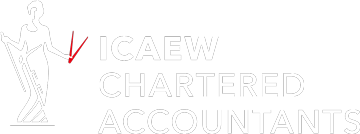London’s financial services sector is a global powerhouse, and tax advisory plays a crucial role in its success. However, with this power comes a significant responsibility – upholding ethical standards and maintaining the integrity of the entire industry. Tax advisors navigate a complex landscape, balancing their clients’ interests with legal and ethical obligations. Let’s delve into the key ethical considerations in tax advisory and explore how these principles can be applied to maintain trust within London’s financial ecosystem.

Tax Investigation Services in London
The Cornerstones of Ethical Tax Advice
- Professional Competence: Tax advisors must possess the necessary knowledge and skills to provide accurate and up-to-date tax advice. This includes staying current with ever-evolving tax laws and regulations, both domestically and internationally. Continuous professional development through training and certifications is essential.
- Confidentiality: Client information is highly sensitive. Tax advisors must maintain strict confidentiality, adhering to client-privilege rules and data protection regulations. This includes secure storage and access controls for client data.
- Conflicts of Interest: Identifying and avoiding conflicts of interest is paramount. Tax advisors should disclose any potential conflicts upfront and take steps to mitigate them, such as recusal from certain cases.
- Professional Judgement: Tax advisors encounter situations where there may be grey areas in tax law. Sound professional judgement, guided by ethical principles, is crucial in navigating these complexities. This involves considering the spirit, not just the letter of the law, and avoiding overly aggressive tax avoidance schemes.
- Objectivity and Independence: Tax advisors should strive to provide objective and independent advice, free from pressure or undue influence from clients or other parties. This ensures clients receive unbiased recommendations in their best interests.
- Transparency and Disclosure: Tax advisors must be transparent with clients about fees, potential risks, and limitations of their advice. Clients should be fully informed about the tax implications of any proposed strategies.
Putting Principles into Practice: Examples from London’s Landscape
- Aggressive Tax Avoidance vs Legitimate Tax Planning: London’s reputation can be tarnished by aggressive tax avoidance schemes that push the boundaries of legality. Ethical tax advisors distance themselves from such practices, focusing on legitimate tax planning strategies that minimise tax liabilities while adhering to the spirit of the law.
- Client Education and Realistic Expectations: Open communication is key. Tax advisors should educate clients about the risks and potential consequences of various tax strategies. Setting realistic expectations regarding tax savings helps clients make informed decisions and avoids misunderstandings.
- Tax Disclosure Requirements: With increasing international cooperation on tax matters, transparency is becoming the norm. Ethical tax advisors ensure clients are aware of their tax disclosure obligations and guide them through the process of compliant reporting.
- Public Interest and Corporate Social Responsibility: Tax advisors can play a role in promoting ethical practices beyond their immediate client base. They can contribute to industry discussions on tax policy and advocate for clear and fair tax laws. Additionally, supporting initiatives that promote corporate social responsibility demonstrates a commitment to a wider societal good.
Benefits of Upholding Ethical Standards
Maintaining ethical standards in tax advisory benefits everyone involved:
- Clients: Clients gain trust and confidence knowing their tax affairs are handled with integrity, minimising the risk of penalties or reputational damage.
- Tax Authorities: Ethical tax practices foster a more cooperative relationship between tax advisors and tax authorities, leading to a more efficient tax collection system.
- Financial Services Sector: A reputation for ethical tax advice strengthens London’s position as a leading financial centre, attracting responsible businesses and investors.
Conclusion
Ethical considerations are not simply a matter of compliance; they are the foundation of trust and integrity within London’s financial services sector. By upholding these principles, tax advisors play a vital role in ensuring a fair and efficient tax system that benefits all stakeholders. Remember, a qualified tax advisor in London isn’t just someone who understands the tax code; they should be a trusted partner who prioritises ethical conduct alongside technical expertise.
For business owners in London seeking tax guidance, look no further than Majestic Accountants, which prioritises both technical proficiency and ethical practice mentioned above. Our focus on customisation ensures your specific needs are addressed.
To schedule a meeting with us, click here.












